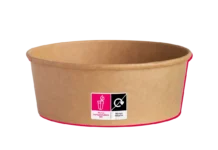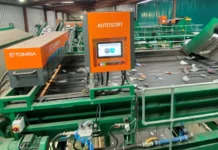
Packaging innovation could pave the way to making reuse the everyday choice of consumers in UK supermarkets, according to a report released on 16 June.
Lack of consumer readiness is often cited as the reason for low investment in circular systems at scale. However, the new research – carried out by plastic pollution campaign group City to Sea – appeared to reveal that:
- Consumer demand is high. Intention to buy is there – 69% of respondents indicated they are likely or very likely to try products in returnable packaging if they are available where they shop, but lack of availability is preventing trial.
- Prefilled returnable packaging presents a significant opportunity for brands: Over half of respondents (53%) said they were more likely to buy from a brand that offered products in prefilled returnable packaging, rising to 84% among those that had previously bought products in returnable packaging.
- Consumers are unwilling to compromise on price. Six in 10 indicated that value for money was the most important criteria influencing their product choice.
- However, almost half of respondents are prepared to pay a deposit for a product that they buy in returnable packaging.
The report is titled ‘Ready to prefill? Market innovation to unlock growth in the market’, and provides – seemingly for the first time – insight into current consumer perceptions, barriers and motivations in relation to pre-filled returnable packaging. It outlines recommendations for brands and retailers to help them maximise the opportunity to meet their waste reduction targets and save money in the future as we look ahead to Extended Producer Responsibility coming in and the associated costs this carries for retailers and brands.
The insights reveal that unsurprisingly during a cost-of-living crisis, consumers are unwilling to compromise on price, however, they are keen to adopt reuse systems to reduce waste, limit use of single-use plastics and decrease their carbon footprint. Supplying products in prefilled returnable packaging mitigates many of the pain points experienced by consumers when using refill-in-store models, especially in terms of ease, convenience and hygiene concerns. The experience feels more familiar to consumers compared to refilling their own containers, and enables consumers to effectively carry out their shopping experience in much the same way as with single-use products, providing retailers and brands make the products available. Consumers also perceive products supplied in prefilled returnable packaging to be better for the environment.
The research brings together insights from behaviour-change consultants and campaigners, City to Sea, supply chain specialists ReRe, and major retail and grocery brands in the UK, along with insights from a first-of-its-kind, nationally representative consumer research project. The work has been part funded by UK Research and Innovation’s (UKRI) Smart Sustainable Plastic Packaging initiative, which helps consumers transition to reuse, and brands and retailers meet packaging reduction targets.
Jane Martin, Head of Development at City to Sea said: “This is a revolutionary approach, by collaborating on a full-system solution brands and retailers can effectively scale-up an effective reuse model that avoids the consumer barriers. It is clear to everyone that consumers want to shop more sustainably, our climate desperately needs us to but, to date the missing link has been the innovative solution – the future is prefill”.
For many, value for money is the most important criteria influencing product choice. Despite this, almost half (47%) of respondents are prepared to pay a deposit for a product that they buy in returnable packaging, with another 19% indicating that they would consider it. Half of consumers said a discount would encourage them to make an initial purchase and to return packaging after use. Supermarket reward points proved a popular alternative, target segments responded differently to incentive schemes so trials will be essential.
The research outlines clear recommendations for how retailers and brands can drive first time trial and boost packaging return rates for prefilled systems. Making the user experience as convenient and frictionless as possible will be fundamental to getting consumers to try the product for the first time and become repeat purchasers. This means products must be made available in the same location as the single-use alternatives and not separated in separate areas or aisles which will limit the experience to only the most dedicated shoppers. Return processes also need to be seamlessly integrated into the existing retail experience.
Stuart Chidley, co-founder of Re said: “Most investment by brands and retailers to date has been in reducing packaging or making it more recyclable. Trials to date on reuse and refill have been limited and isolated, lacking collaboration and a longer-term vision. This report provides further evidence of a frustrated consumer demand and the need for stakeholder collaboration to accelerate the transition to reuse.”
He continues “Ongoing concerns about the commercial viability of reuse mean few brands have set meaningful targets or timescales to roll pilots out more widely. This will only be solved through innovation, cross-industry collaboration and increased efficiency to unlock economies of scale. Re has set out to address these issues with a vision for a cross-category, professionally refillable, reusable packaging platform that is consumer-centric and centres around smart standardised returnable packaging-as-a-service to reduce the cost and risk barriers for stakeholders”.
While the reuse market is growing, it remains small. Four in 10 businesses that have signed up to the Ellen MacArthur Foundation (EMF) global commitment[1] have reuse pilots in place and an additional 56% have pilots planned between now and 2025. However, refillable and returnable products still only accounted for 1.2%[2] of the UK market in 2022. Tesco’s trial with Loop remains the largest UK pilot of products in prefilled returnable packaging. Low uptake meant Tesco ended the partnership, identifying the need for work “to encourage a cultural and behavioural shift from customers”.
In contrast, retailer Marks & Spencer’s who have been running a prefilled returnable packaging trial in six of their stores since last year, has reported positive results to date. Sales have outperformed their forecast and some products such as the citrus washing-up liquid have even beaten sales of the single-use plastic-packaged equivalent in one of the pilot stores. The response from customers has also been positive and as they look towards the future, the retailer is considering expansion of the range as part of its waste reduction strategy.
You can also download the full report here.







